Brewster Kahle
description: American computer engineer, founder of the Internet Archive
41 results
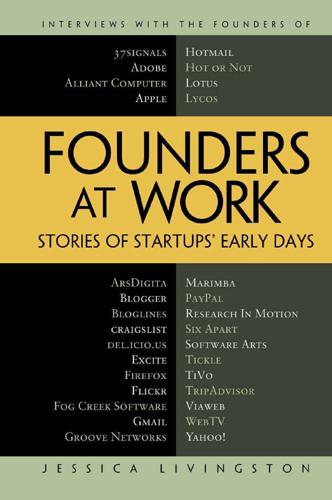
Founders at Work: Stories of Startups' Early Days
by Jessica Livingston · 14 Aug 2008 · 468pp · 233,091 words
del.icio.us . . . . . . . . . . . . . . . . . . . . . . . . . . . . . . 223 CHAPTER 17 MARK FLETCHER ONElist, Bloglines . . . . . . . . . . . . . . . . . . . . . . . . . 233 CHAPTER 18 CRAIG NEWMARK craigslist . . . . . . . . . . . . . . . . . . . . . . . . . . . . . . . 247 CHAPTER 19 CATERINA FAKE Flickr . . . . . . . . . . . . . . . . . . . . . . . . . . . . . . . . 257 CHAPTER 20 BREWSTER KAHLE WAIS, Internet Archive, Alexa Internet . . . . . . . . . . . . . 265 CHAPTER 21 CHARLES GESCHKE Adobe Systems . . . . . . . . . . . . . . . . . . . . . . . . . . 281 CHAPTER 22 ANN WINBLAD Open Systems, Hummer Winblad . . . . . . . . . . . . . . . . 297 CHAPTER 23 DAVID
…
building partnerships, and we want to make sure that women get a fair shake. C H A P T E 20 R Brewster Kahle Founder,WAIS, Internet Archive, Alexa Internet Brewster Kahle started WAIS (Wide Area Information Servers) in the late ’80s while an employee of Thinking Machines. He left in 1993 to found
…
like going from the Roaring 20s, when champagne is coming from everywhere, into the depression, where you are washing your baggies and reusing twist ties. Brewster Kahle 267 Actually I really liked the discipline that came from a bootstrapped startup. I think that everybody that goes and does a startup—even if
…
after a couple years got more or less voted out. Not because of WAIS, but the partners said, “We want a different type of management.” Brewster Kahle 269 So this was still being done within Thinking Machines, but I found that Thinking Machines wasn’t going to go and build some of
…
was a lot of consternation. There were a lot of questions of whether Thinking Machines owned the idea or whatever. I was very careful to Brewster Kahle 271 make sure that all the things that the (eventually) WAIS company needed were actually based on the public domain of software that had been
…
we build this Internet. Let’s build this Internet together based on open systems.” So these business guys were, in fact, wanting an open system. Brewster Kahle 273 We wanted to build this up before the monopolists got to town and said, “Oh, you don’t want an open system. You want
…
making services in a commercial company, but donating all of the materials collected to a nonprofit that was designed to last the ages. It was Brewster Kahle 275 very specifically designed to think through what happens after the commercial company is gone. Livingston: When you first started with Alexa, did you get
…
’re doing something quite different from data mining. We have this toolbar we can get out there in front of people and things like that.” Brewster Kahle 277 In talks with Jeff Bezos, the founder of Amazon.com, I said, “I tried being acquired, and it didn’t work. By AOL, a
…
good at. There are other people in the organization with more specialization in different areas. It takes a couple years to really get that debugged. Brewster Kahle 279 You can grow it instantly. You can hire 40 people in an afternoon, but they won’t necessarily work together well; they won’t
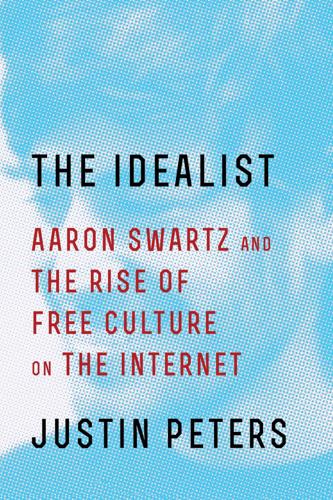
The Idealist: Aaron Swartz and the Rise of Free Culture on the Internet
by Justin Peters · 11 Feb 2013 · 397pp · 102,910 words
terms. But the entities making those arguments often seemed to willfully ignore any public benefit that might be derived from the public domain. In 2002, Brewster Kahle devised a novel way of illustrating that public benefit. Kahle, an engineer and entrepreneur who had worked at the MIT AI Lab during the tail
…
the beach and drinking fine champagne and eating foie gras,” he wrote facetiously. “Then I got a phone call.”56 The phone call was from Brewster Kahle, who wanted Swartz to help him build the ultimate online library. Since driving his bookmobile to Washington for the Eldred v. Ashcroft arguments, Kahle had
…
the Internet at large. “The Internet Archive is already blacklisted in China—let’s prevent the United States from establishing its own blacklist system,” wrote Brewster Kahle.68 “If you like what we do, oppose SOPA and PIPA,” Project Gutenberg said on its Facebook page. The unexpected inaccessibility of some of their
…
.com/post/1483459/launch. 56 Aaron Swartz, “Announcing the Open Library,” Raw Thought, July 16, 2007, http://www.aaronsw.com/weblog/openlibrary. 57 Becky Hogge, “Brewster Kahle,” New Statesman, October 17, 2005, http://www.newstatesman.com/node/151776. 58 Jones, “Constructing the Universal Library,” 275. 59 Ibid., 276. 60 For more on
…
/07/more-than-35000-sign-petition-in-support-of-aaron-swartz/. 56 Abelson et al., MIT Report, 68. 57 Brewster Kahle, “Michael Hart of Project Gutenberg Passes,” Brewster Kahle’s Blog, September 7, 2011, http://brewster.kahle.org/2011/09/07/michael-hart-of-project-gutenberg-passes/. 58 Tim Berners-Lee, “Long Live the Web: A
…
://americancensorship.org/. 66 Ibid., November 18, 2011, https://web.archive.org/web/20111118014748/http://americancensorship.org/. 67 Moon, Ruffini, and Segal, Hacking Politics, 117. 68 Brewster Kahle, “12 Hours Dark: Internet Archive vs. Censorship,” Internet Archive Blogs, January 17, 2012, https://blog.archive.org/2012/01/17/12-hours-dark-internet-archive
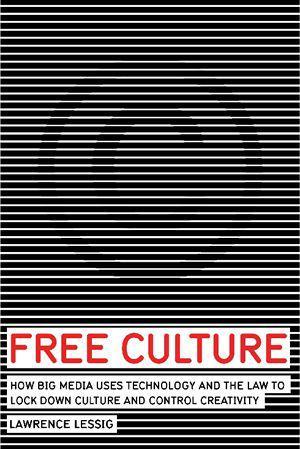
Free culture: how big media uses technology and the law to lock down culture and control creativity
by Lawrence Lessig · 15 Nov 2004 · 297pp · 103,910 words
an opportunity to spread that creativity everywhere. But we're building the law to close down that technology. "No way to run a culture," as Brewster Kahle, whom we'll meet in chapter 9, quipped to me in a rare moment of despondence. Chapter 3 Catalogs In the fall of 2002, Jesse
…
archives of newspapers from tiny towns around the world, yet there is but one copy of the Internet—the one kept by the Internet Archive. Brewster Kahle is the founder of the Internet Archive. He was a very successful Internet entrepreneur after he was a successful computer researcher. In the 1990s, Kahle
…
film and music: The cost of analog copies is extraordinarily high. So even though the law in principle would have restricted the ability of a Brewster Kahle to copy culture generally, the real restriction was economics. The market made it impossibly difficult to do anything about this ephemeral culture; the law had
…
possible to imagine an archive of all moving images and sound. The scale of this potential archive is something we've never imagined before. The Brewster Kahles of our history have dreamed about it; but we are for the first time at a point where that dream is possible. As Kahle describes
…
more legal work. In 1930, 10,047 books were published. In 2000, 174 of those books were still in print. Let's say you were Brewster Kahle, and you wanted to make available to the world in your iArchive project the remaining 9,873. What would you have to do? Well, first
…
interfered with anything. But this situation has now changed. One crucially important consequence of the emergence of digital technologies is to enable the archive that Brewster Kahle dreams of. Digital technologies now make it possible to preserve and give access to all sorts of knowledge. Once a book goes out of print
…
is a brake. You may well ask, "But if digital technologies lower the costs for Brewster Kahle, then they will lower the costs for Random House, too. So won't Random House do as well as Brewster Kahle in spreading culture widely?" Maybe. Someday. But there is absolutely no evidence to suggest that publishers
…
] U.S. Department of Commerce Office of Acquisition Management, Seven Steps to Performance-Based Services Acquisition, available at link #22. [115] The temptations remain, however. Brewster Kahle reports that the White House changes its own press releases without notice. A May 13, 2003, press release stated, "Combat Operations in Iraq Have Ended
…
." That was later changed, without notice, to "Major Combat Operations in Iraq Have Ended." E-mail from Brewster Kahle, 1 December 2003. [116] Doug Herrick, "Toward a National Film Collection: Motion Pictures at the Library of Congress," Film Library Quarterly 13 nos. 2¬3
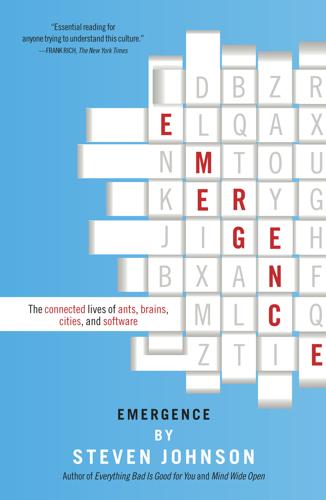
Emergence
by Steven Johnson · 329pp · 88,954 words
first attempt to nurture emergent intelligence online began with the desire to keep the Web from being so forgetful. * * * You can’t really, truly understand Brewster Kahle until you’ve had him show you the server farm in Alexa Internet’s basement. Walk down a flight of outdoor steps at the side
…
people did.” Hodges, 291. “Not as crazy”: Wright, 302. “But the Internet”: From a Slate book club, February 1, 2000. “So the question”: Interviews with Brewster Kahle, conducted October 2000 and July 1998. Decades ago, in: Wiener, 35. Our brains got: Once again, the information-processing skills of ant colonies are instructive
…
, Deborah Gordon, Rob Malda, Jeff Bates, Oliver Selfridge, Will Wright, David Jefferson, Evelyn Fox Keller, Rik Heywood, Mitch Resnick, Steven Pinker, Eric Zimmerman, Nate Oostendorp, Brewster Kahle, Andrew Shapiro, and Douglas Rushkoff. I recall more than a few casual conversations that also had an impact, primarily ones that involved David Shenk, Ruthie
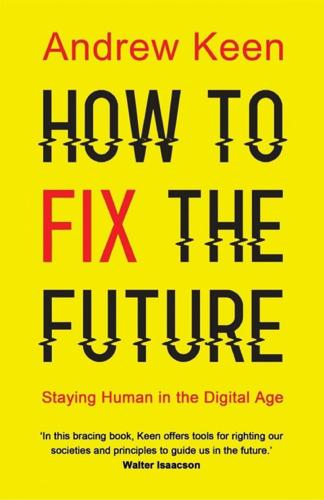
How to Fix the Future: Staying Human in the Digital Age
by Andrew Keen · 1 Mar 2018 · 308pp · 85,880 words
summit called for a return to the original sharing ideals of the web. “We originally wanted three things from the internet—reliability, privacy, and fun,” Brewster Kahle, the summit organizer and the founder of the Internet Archive, told me when I visited him at his funky offices in a defunct Christian Science
…
the network age. The tragedy of today’s digital revolution, I argued, is that the ideals of digital pioneers like Norbert Wiener, Tim Berners-Lee, Brewster Kahle, and Jimmy Wales—democracy, equality, enlightenment, freedom, universality, transparency, accountability, above all public space—have not, so far at least, been realized. Instead of Berners
…
event, which brought together privacy advocates and pioneers of such peer-to-peer technologies as blockchain to discuss a “new phase of the internet.”1 Brewster Kahle, the Internet Archive founder and summit organizer, believes that the time is now right for a radical re-decentralization of digital power. The future has
…
-sixties in terms of losing both the trust and the loyalty of its consumers. Echoing the arguments of digital pioneers like Tim Berners-Lee and Brewster Kahle, Al-Hames argues that only 50 percent of web pages are secure, that trackers spy on us on every web page—with 25 percent of
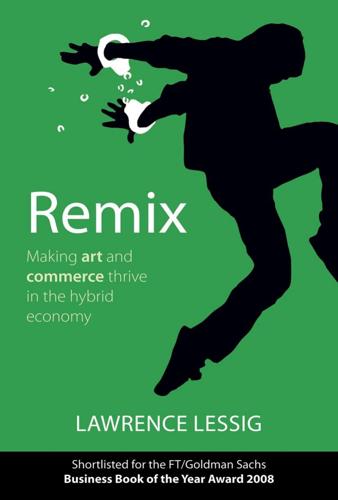
Remix: Making Art and Commerce Thrive in the Hybrid Economy
by Lawrence Lessig · 2 Jan 2009
number one blogging language. And Farsi has just entered the top ten.9 When blogs began (and you can still see these early blogs using Brewster Kahle’s “Wayback machine” at archive.org), while they expressed RW creativity (since the norm for this form of writing encouraged heavy linking and citation), their
…
projects or to their results. • The Internet Archive is a sharing economy. Launched in 1996 by serial technology entrepreneur (and one of the successful ones) Brewster Kahle, the Internet Archive seeks to offer “permanent access for researchers, historians, and scholars to historical collections that exist in digital format.”65 But to do
…
don’t yet have a clear answer to this question. If the hybrid feels too commercial, that saps the eagerness of the volunteers to work. Brewster Kahle founded the nonprofit Internet Archive after profiting from many commercial enterprises, as he told me: “If you feel like you are working for the man
…
to break down that perception. You want to build a company whose first value is not privacy but, instead, disclosure. Some companies go even further. Brewster Kahle describes the decision of the search company Alexa. [W]e wanted to build a new-generation search engine, which is sort of what Alexa and
…
’re free to get and use Gracenote software.” Many believe this commercialization of a free project weakens the incentive for volunteers to contribute to it. Brewster Kahle, for example, holds this view. Gracenote became less after its founders made more. The same is true for a parallel database, also initially built by
…
who appear throughout the book: Brian Behlendorf, Marc Brandon, Candice Breitz, Stewart Butterfield, Steve Chen, Gregg Gillis, Mark Hosier, Joi Ito, Mimi Ito, Don Joyce, Brewster Kahle, Heather Lawver, Declan McCullagh, Dave Marglin, Craig Newmark, Silvia Ochoa, Tim O’Reilly, Philip Rosedale, Mark Shuttleworth, Johan Söderberg, Victor Stone, Jimmy Wales, Jerry Yang
…
(last visited August 20, 2007). 65. “About the Internet Archive,” Internet Archive, available at link #80 (last visited July 31, 2007). 66. All quotes from Brewster Kahle taken from an interview conducted January 24, 2007, by telephone. 67. NASA Ames, “Welcome to the Clickworkers Study,” Clickworkers, available at link #81 (last visited
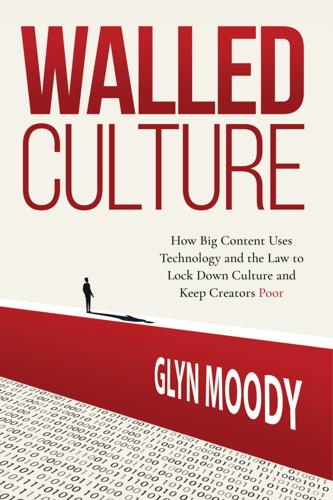
Walled Culture: How Big Content Uses Technology and the Law to Lock Down Culture and Keep Creators Poor
by Glyn Moody · 26 Sep 2022 · 295pp · 66,912 words
strong institutions to counter the dystopian impulses of some organizations and build an information ecosystem that has many winners, many voices, and much to celebrate. Brewster Kahle July 2022 San Francisco CHAPTER 1 From Analogue to Digital Big Content’s plan to take total control online The modern world is digital. We
…
concerts); 6 million videos (including 2 million TV news programmes); 3.5 million images; and 580,000 software programs. The founder of the Internet Archive, Brewster Kahle, explained the background to this immense project: “The idea for me, at least for the Internet, was to try to build the Great Library. The
…
/20220701073629/https://openlibrary.org/ 90 https://web.archive.org/web/20220621034828/https://archive.org/ 91 https://web.archive.org/web/20220621074031/https://walledculture.org/interview-brewster-kahle-libraries-role-3-internet-battles-licensing-pains-the-national-emergency-library-and-the-internet-archives-controlled-digital-lending-efforts-vs-the-publishers-lawsuit/ 92 https
…
-national-emergency-library-to-close-2-weeks-early-returning-to-traditional-controlled-digital-lending/ 107 https://web.archive.org/web/20220621165251/https://walledculture.org/interview-brewster-kahle-libraries-role-3-internet-battles-licensing-pains-the-national-emergency-library-and-the-internet-archives-controlled-digital-lending-efforts-vs-the-publishers-lawsuit/ 108 https
…
to understand fully the legislation, get a lawyer, and a good one. Finally, my thanks to the Kahle/Austin Foundation and the Internet Archive’s Brewster Kahle for supporting both the Walled Culture blog and this book, and to my family for supporting me. Glyn Moody 1 https://web.archive.org/web
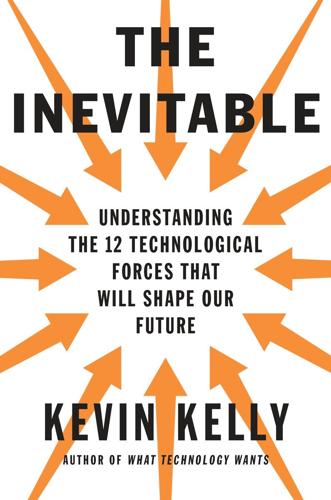
The Inevitable: Understanding the 12 Technological Forces That Will Shape Our Future
by Kevin Kelly · 6 Jun 2016 · 371pp · 108,317 words
mythical dream that keeps receding further into the infinite future. But might the long-heralded great library of all knowledge really be within our grasp? Brewster Kahle, an archivist who is backing up the entire internet, says that the universal library is now within reach. “This is our chance to one-up
…
wrote this material I benefited from the precious time of many interviewees. Among them were John Battelle, Michael Naimark, Jaron Lanier, Gary Wolf, Rodney Brooks, Brewster Kahle, Alan Greene, Hal Varian, George Dyson, and Ethan Zuckerman. Thanks to the editors of Wired and The New York Times Magazine, who were instrumental in
…
, “Culture and Power in Ptolemaic Egypt: The Library and Museum at Alexandria,” Greece and Rome 42 (1995). backing up the entire internet: Personal correspondence with Brewster Kahle, 2006. at least 310 million books: “WorldCat Local,” WorldCat, accessed August 18, 2015. 1.4 billion articles and essays: Ibid. 180 million songs: “Introducing Gracenote
…
“Statistics,” YouTube, accessed August 18, 2015. 60 trillion public web pages: “How Search Works,” Inside Search, Google, 2013. 50-petabyte hard disks: Private communication with Brewster Kahle, 2006. 25 million orphan works: Naomi Korn, In from the Cold: An Assessment of the Scope of ‘Orphan Works’ and Its Impact on the Delivery
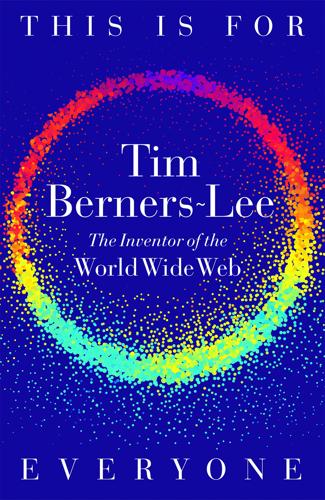
This Is for Everyone: The Captivating Memoir From the Inventor of the World Wide Web
by Tim Berners-Lee · 8 Sep 2025 · 347pp · 100,038 words
findings, academic citations, and all kinds of other information whose value is diminished by the lack of links. I am deeply indebted to the archivist Brewster Kahle for providing an important tool in the fight against missing information. In 1996, Brewster, along with Bruce Gilliat, founded Alexa Internet, a for-profit firm
…
describes a bright future in which everyone has Solid wallets as part of their re-empowered digital lives. On the geeky end of the spectrum, Brewster Kahle, the founder of the Internet Archive, continues to organize workshops on the decentralized web. At one of Brewster’s workshops, the Solid community met the
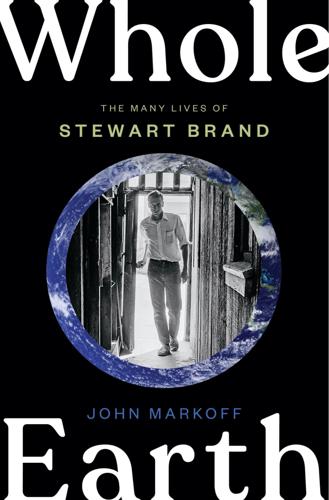
Whole Earth: The Many Lives of Stewart Brand
by John Markoff · 22 Mar 2022 · 573pp · 142,376 words
September 1998, he drove his Range Rover across Nevada to Ely, where he met Danny Hillis and his then wife, Patti; Rose; Kennedy; Saffo; and Brewster Kahle. Kahle, a New Yorker who had studied computer science at MIT and then worked for Hillis at Thinking Machines, had come to the West Coast
…
at the turn of the new millennium in 2000, a crowd of thirty people gathered in the combined offices of the Long Now Foundation and Brewster Kahle’s Internet Archive. By now the Presidio’s residential housing had been converted to upscale rentals for the dot-com workforce. For several years it
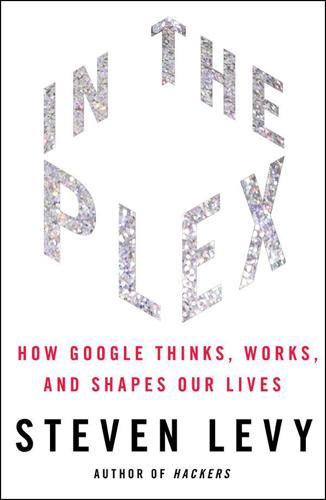
In the Plex: How Google Thinks, Works, and Shapes Our Lives
by Steven Levy · 12 Apr 2011 · 666pp · 181,495 words
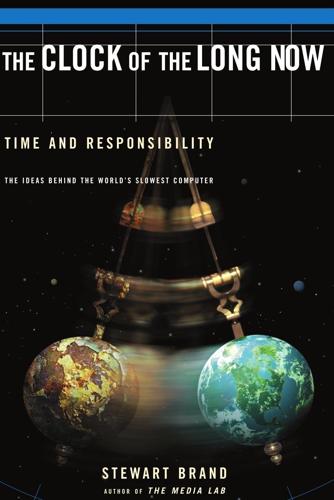
Clock of the Long Now
by Stewart Brand · 1 Jan 1999 · 194pp · 49,310 words
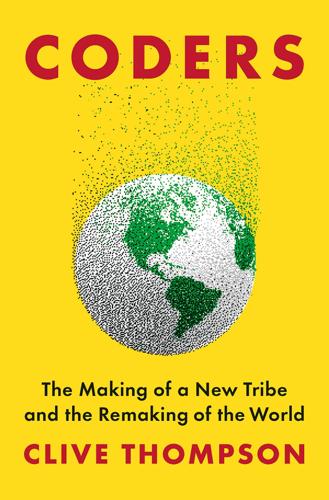
Coders: The Making of a New Tribe and the Remaking of the World
by Clive Thompson · 26 Mar 2019 · 499pp · 144,278 words
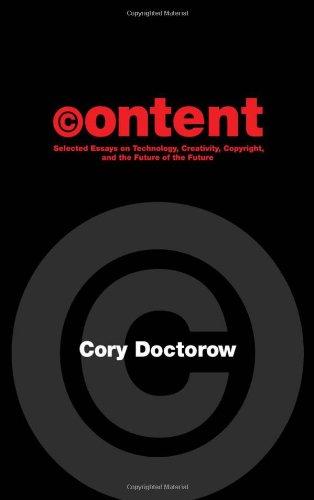
Content: Selected Essays on Technology, Creativity, Copyright, and the Future of the Future
by Cory Doctorow · 15 Sep 2008 · 189pp · 57,632 words
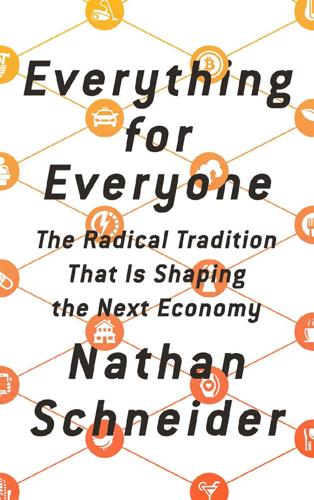
Everything for Everyone: The Radical Tradition That Is Shaping the Next Economy
by Nathan Schneider · 10 Sep 2018 · 326pp · 91,559 words
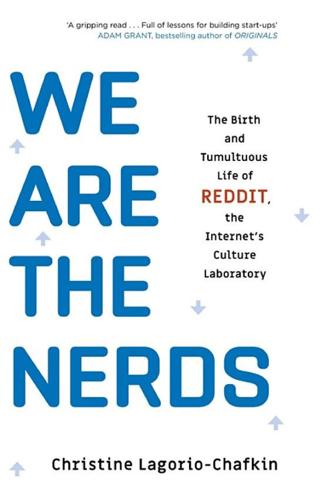
We Are the Nerds: The Birth and Tumultuous Life of Reddit, the Internet's Culture Laboratory
by Christine Lagorio-Chafkin · 1 Oct 2018
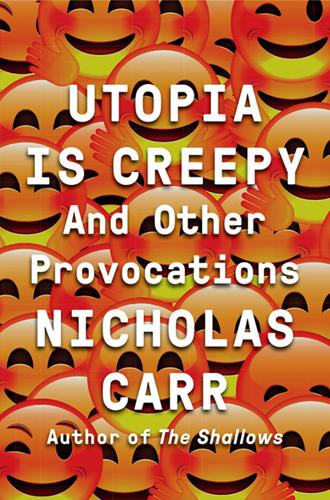
Utopia Is Creepy: And Other Provocations
by Nicholas Carr · 5 Sep 2016 · 391pp · 105,382 words
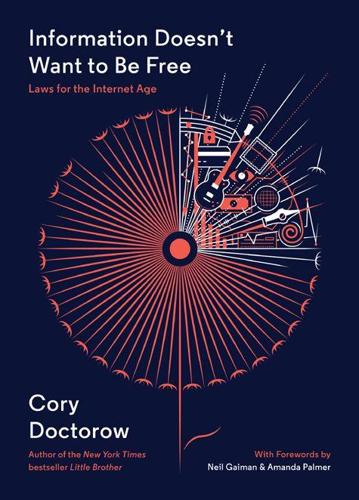
Information Doesn't Want to Be Free: Laws for the Internet Age
by Cory Doctorow, Amanda Palmer and Neil Gaiman · 18 Nov 2014 · 170pp · 51,205 words
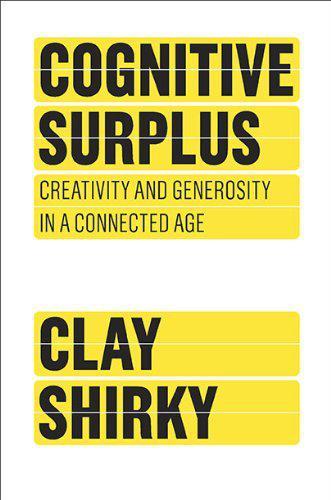
Cognitive Surplus: Creativity and Generosity in a Connected Age
by Clay Shirky · 9 Jun 2010 · 236pp · 66,081 words
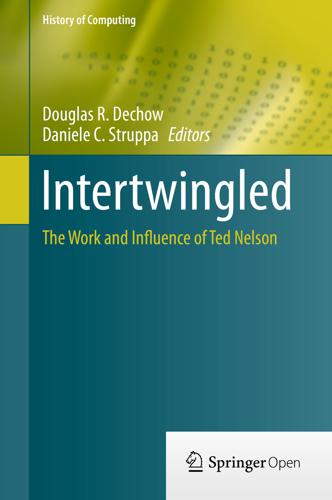
Intertwingled: The Work and Influence of Ted Nelson (History of Computing)
by Douglas R. Dechow · 2 Jul 2015 · 223pp · 52,808 words
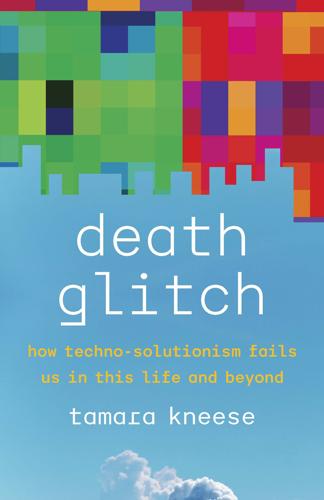
Death Glitch: How Techno-Solutionism Fails Us in This Life and Beyond
by Tamara Kneese · 14 Aug 2023 · 284pp · 75,744 words
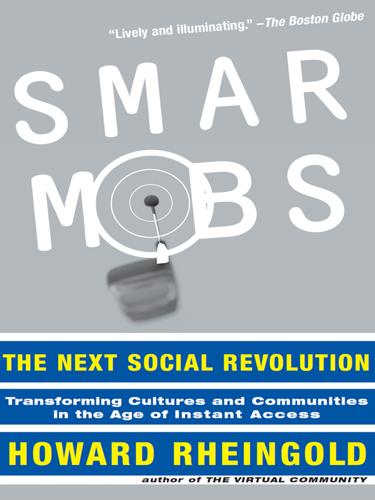
Smart Mobs: The Next Social Revolution
by Howard Rheingold · 24 Dec 2011
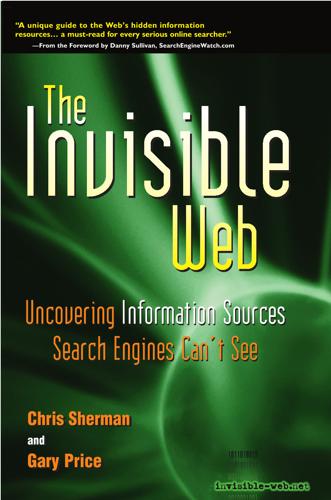
The Invisible Web: Uncovering Information Sources Search Engines Can't See
by Gary Price, Chris Sherman and Danny Sullivan · 2 Jan 2003 · 481pp · 121,669 words
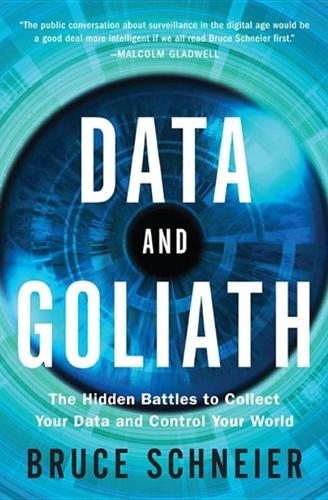
Data and Goliath: The Hidden Battles to Collect Your Data and Control Your World
by Bruce Schneier · 2 Mar 2015 · 598pp · 134,339 words
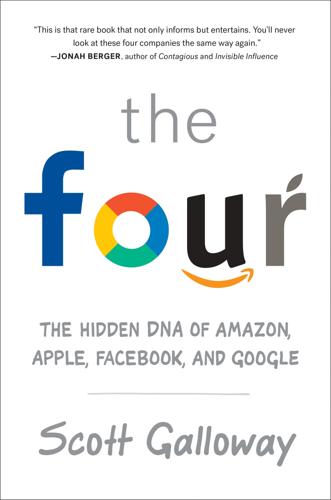
The Four: How Amazon, Apple, Facebook, and Google Divided and Conquered the World
by Scott Galloway · 2 Oct 2017 · 305pp · 79,303 words
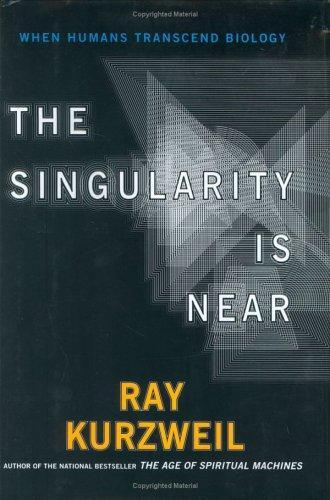
The Singularity Is Near: When Humans Transcend Biology
by Ray Kurzweil · 14 Jul 2005 · 761pp · 231,902 words
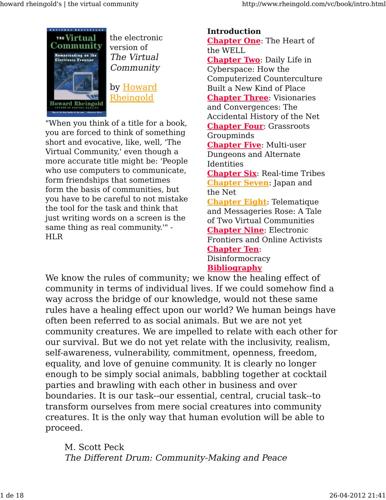
Howard Rheingold
by The Virtual Community Homesteading on the Electronic Frontier-Perseus Books (1993) · 26 Apr 2012
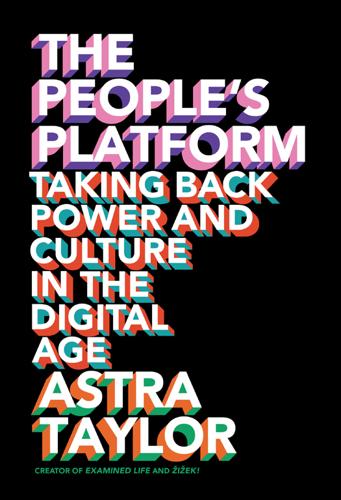
The People's Platform: Taking Back Power and Culture in the Digital Age
by Astra Taylor · 4 Mar 2014 · 283pp · 85,824 words
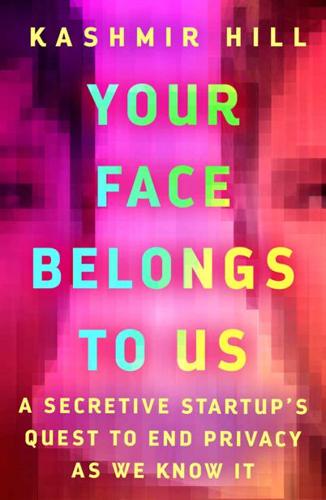
Your Face Belongs to Us: A Secretive Startup's Quest to End Privacy as We Know It
by Kashmir Hill · 19 Sep 2023 · 487pp · 124,008 words
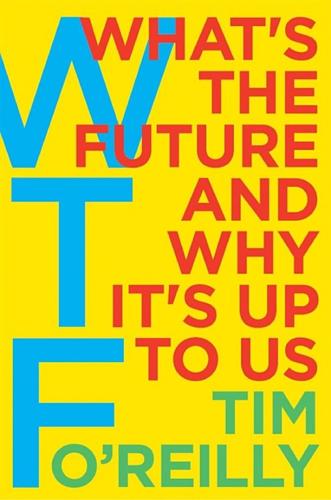
WTF?: What's the Future and Why It's Up to Us
by Tim O'Reilly · 9 Oct 2017 · 561pp · 157,589 words
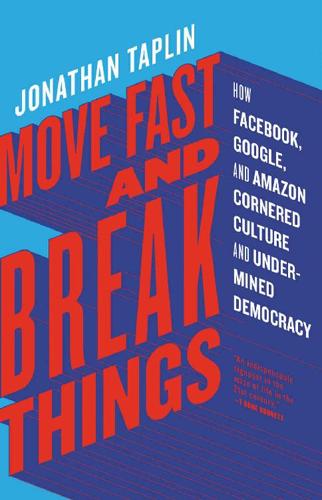
Move Fast and Break Things: How Facebook, Google, and Amazon Cornered Culture and Undermined Democracy
by Jonathan Taplin · 17 Apr 2017 · 222pp · 70,132 words
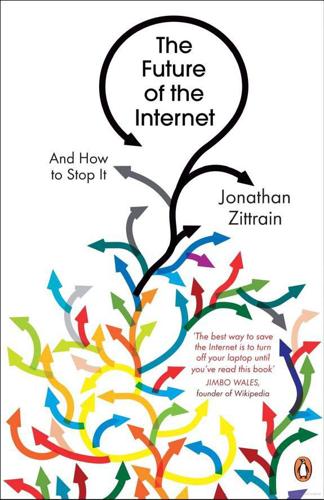
The Future of the Internet: And How to Stop It
by Jonathan Zittrain · 27 May 2009 · 629pp · 142,393 words
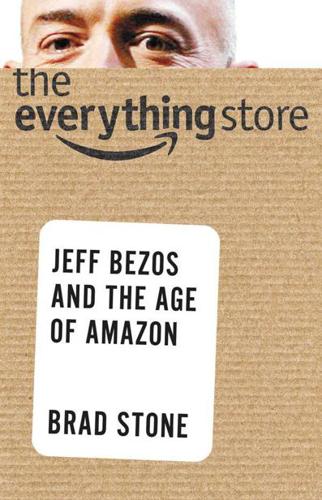
The Everything Store: Jeff Bezos and the Age of Amazon
by Brad Stone · 14 Oct 2013 · 380pp · 118,675 words
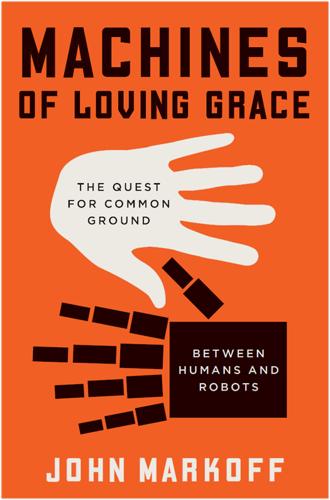
Machines of Loving Grace: The Quest for Common Ground Between Humans and Robots
by John Markoff · 24 Aug 2015 · 413pp · 119,587 words
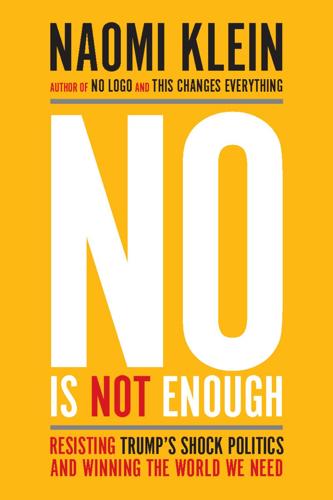
No Is Not Enough: Resisting Trump’s Shock Politics and Winning the World We Need
by Naomi Klein · 12 Jun 2017 · 357pp · 94,852 words
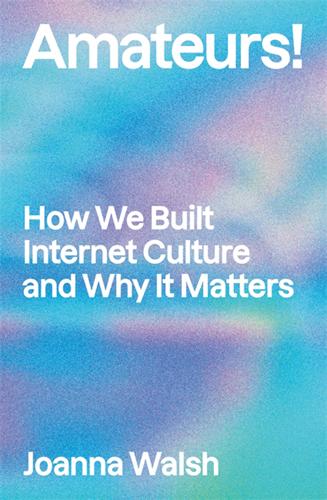
Amateurs!: How We Built Internet Culture and Why It Matters
by Joanna Walsh · 22 Sep 2025 · 255pp · 80,203 words
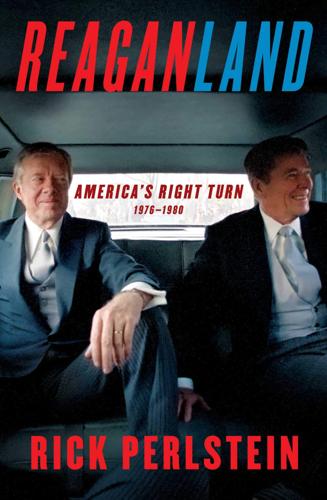
Reaganland: America's Right Turn 1976-1980
by Rick Perlstein · 17 Aug 2020
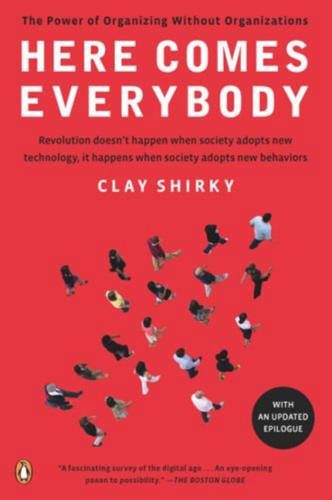
Here Comes Everybody: The Power of Organizing Without Organizations
by Clay Shirky · 28 Feb 2008 · 313pp · 95,077 words
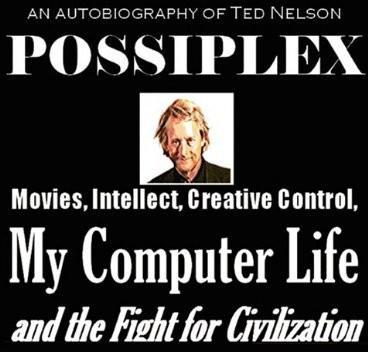
Possiplex
by Ted Nelson · 2 Jan 2010
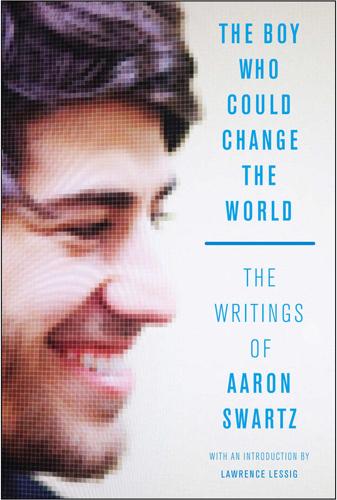
The Boy Who Could Change the World: The Writings of Aaron Swartz
by Aaron Swartz and Lawrence Lessig · 5 Jan 2016 · 377pp · 110,427 words
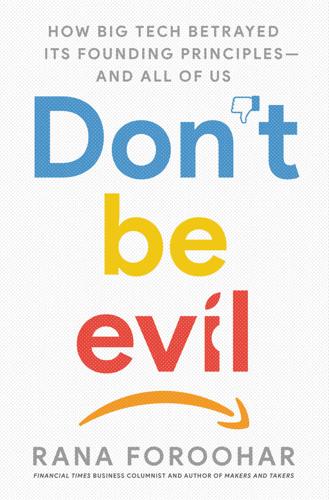
Don't Be Evil: How Big Tech Betrayed Its Founding Principles--And All of US
by Rana Foroohar · 5 Nov 2019 · 380pp · 109,724 words